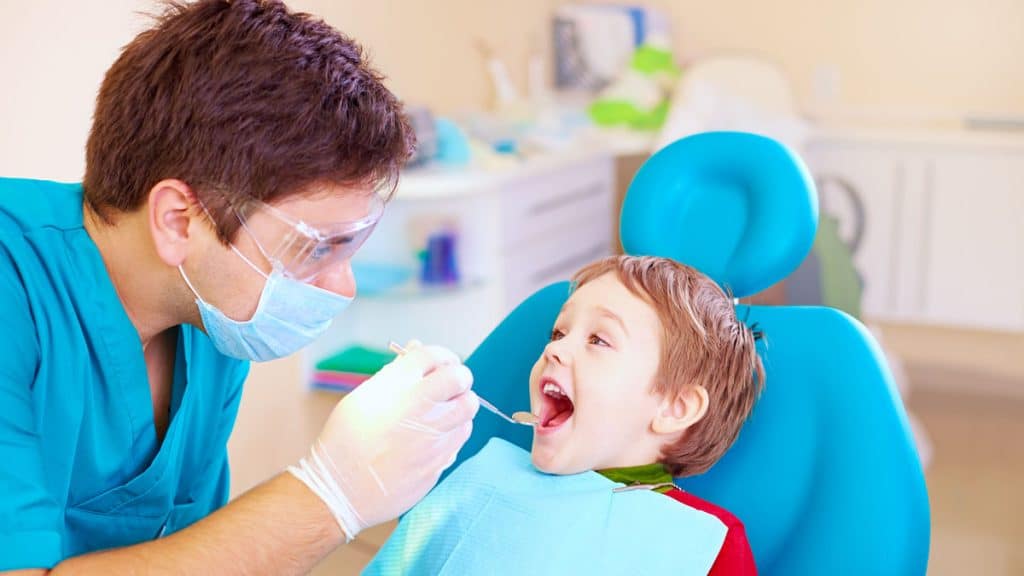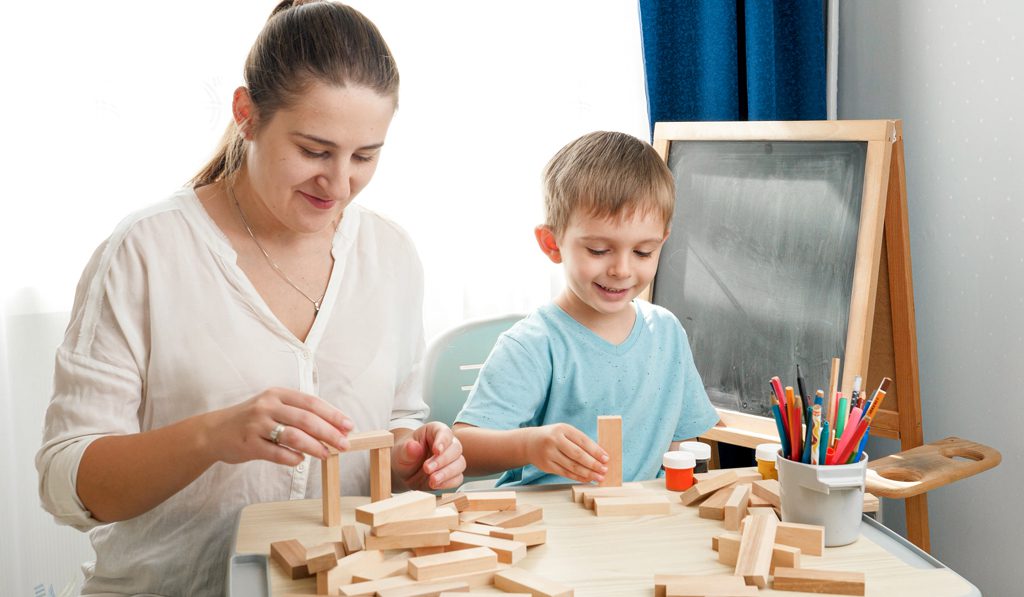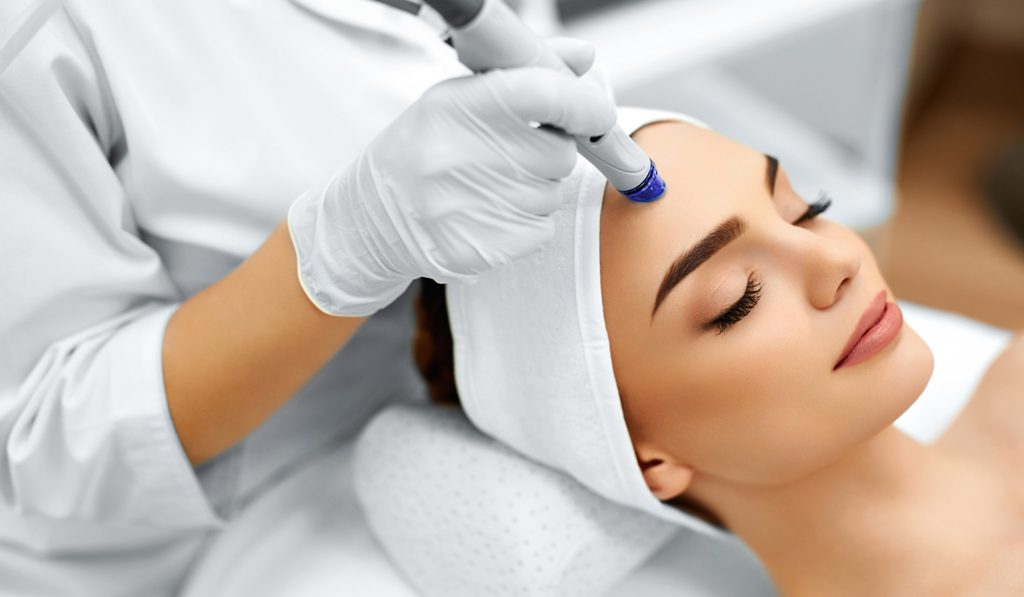Good habits start early, and as a parent, it is your responsibility to make sure your child picks up healthy habits right from the beginning. Among the numerous positive mannerisms and healthy habits that one needs to learn at an early age is that of dental care. Now, if you are thinking just teaching your kid to brush their teeth twice daily is enough to get the job done, well, you are sadly mistaken. It takes more than that.
Even if your child is teething normally, it is crucial to take him to dentists on a regular basis from a very early age. Want to know why? Read on.
Importance of Taking Your Kids to a Dentists at an Early Age
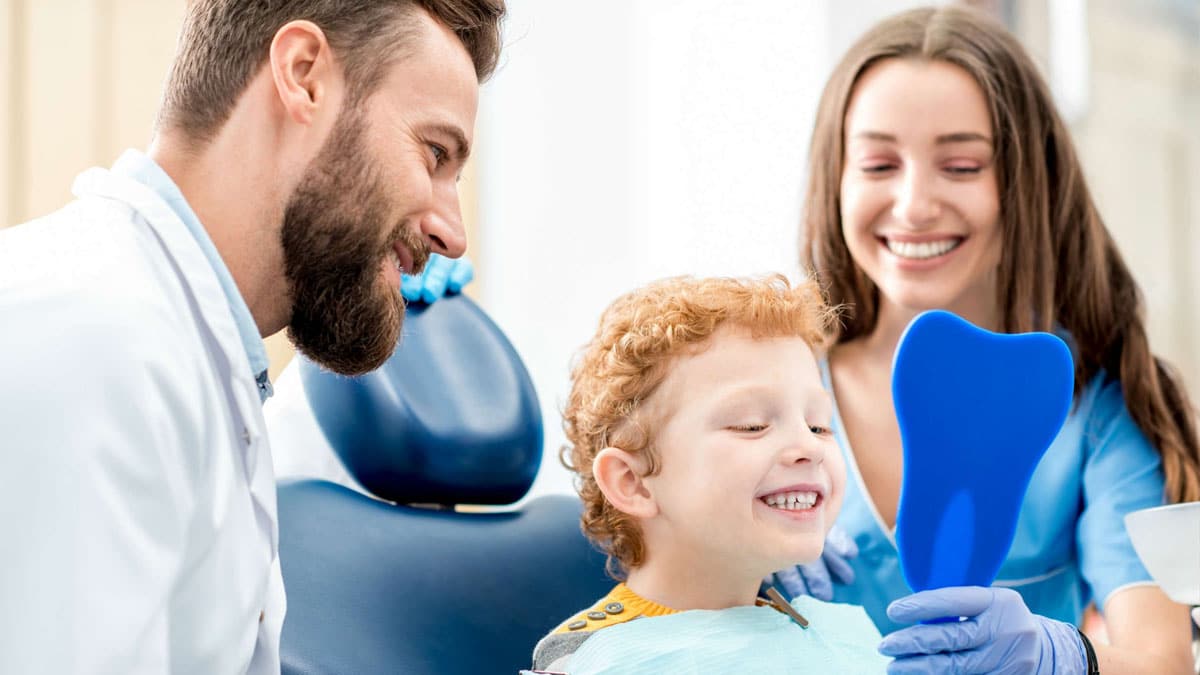 We all know that a sturdy building needs a strong foundation. The same applies to the dental health of a person. This is why it is highly recommended to take care of the oral health of a kid right from the beginning.
We all know that a sturdy building needs a strong foundation. The same applies to the dental health of a person. This is why it is highly recommended to take care of the oral health of a kid right from the beginning.
When you take your kid to the dentists from an early age, the overall health of their teeth will be better throughout their lifetime. From avoiding tooth decay to preventing cavities, early visits to a dentist can take care of a range of dental issues for your kids. Here are some key points as to why you need to take your kids to dentists from an early age.
To Develop Better Eating Habits
When you visit a dentist, he or she will be able to help you understand what is causing this tooth decay in your kid. For instance, one of the main reasons for the tooth cavity amongst toddlers is because they tend to fall asleep with a bottle of juice or milk in their mouths.
Pediatric dentists usually advise parents to encourage their kids to drink water, juice, or milk from a cup as they start approaching their first birthday. This helps in making sure that they are not sticking the bottle in their mouth for a longer time, which, in turn, would help in avoiding tooth decay.
To Avoid Tooth Decay
Parents worry about the cavities in the teeth of their toddlers but fail to provide adequate care for it. Many believe that visits to dentists are only appropriate after a certain point of time (with most assuming it to be early teens). But, if you look meticulously, then you would notice that as a parent, your little misdoings are leading up to the poor dental health of your kid.
Visiting a certified dentist would also help you realize when exactly to stop on-demand night-time breastfeeding. This is because when your toddler first starts developing teeth, irregular feeding can accelerate the process of tooth decay in them. In addition, you will be in a better position to understand how to brush the teeth of your kids, which we will address later in the article.
To Better Develop Permanent Teeth
It has been seen that inadequate tooth-brushing habits, improper food intake, and poor diet during the first two years of a child’s life can have long-lasting adverse effects on their dental health. The caries that develop in the primary teeth of kids increases the chances of developing caries in their permanent teeth as well later in their lives.
To Improve Pronunciation
Kids with healthy dental life are not only able to have a healthy white smile, but are also able to chew their food properly and learn to speak clearly. According to the Centers for Disease Control and Prevention (CDC), more than 40 percent of kids experience tooth decay by the time they reach kindergarten.
When Should Kids Start Visiting a Dentist?
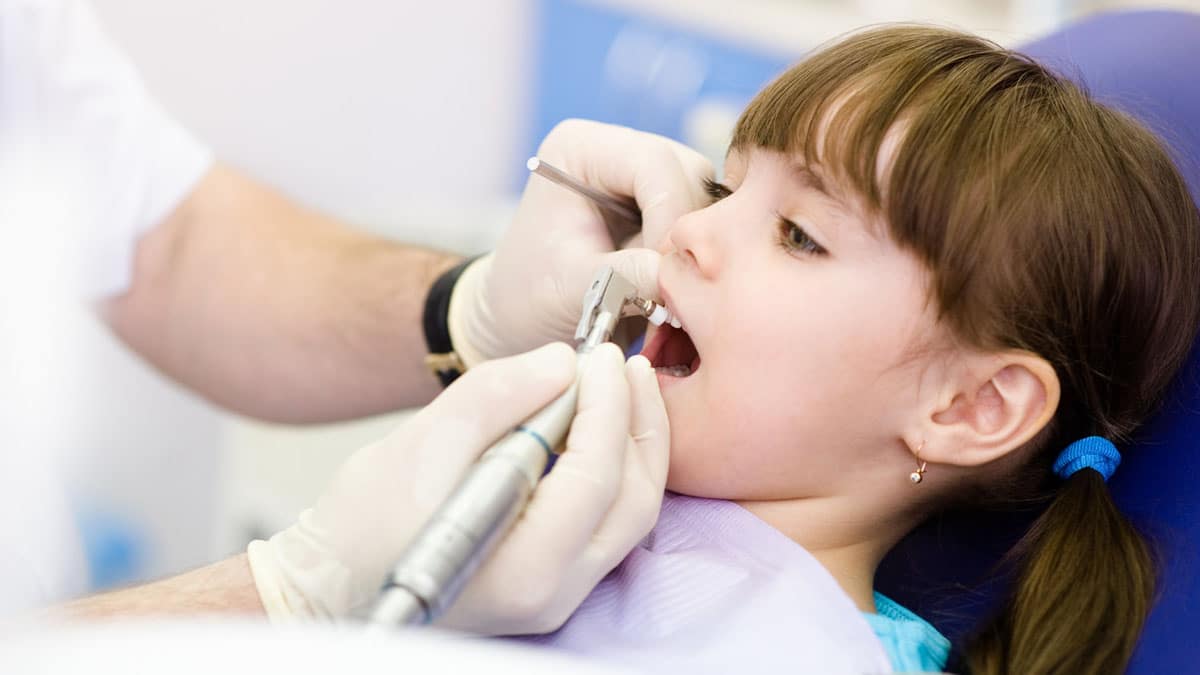
As per the American Dental Association (ADA), a child should start seeing a dentist by their first birthday. On their first visits, the dentist would explain to the parents the correct brushing and flossing techniques. Depending on the conditions of your toddler’s teeth, the dentist may or may not perform a modified exam.
You also need to keep in mind that taking your kids to dentists from an early age will help in evading the fear that kids generally have of visiting a dental clinic. After all, your kid needs to understand that not all visits to a dentist are due to a painful root canal.
Moreover, a regular visit to a dentist from an early age will allow your dentist to properly guide you regarding solving other major dental concerns. This includes understanding when to refer your kid to an oral surgeon for jaw realignment or orthodontist for correcting an overbite.
For kids who are at risk of developing cavities or other related dental problems, the dentist may suggest applying topical fluoride even before all the teeth come in. This eventually helps in hardening the enamel of your kid’s teeth, which, in turn, helps in warding off various oral diseases. Your dentist would also advise you in understanding the quantity of sugar that needs to be fed to your kid and the frequency of the consumption of the same.
Brushing Guidelines for Kids
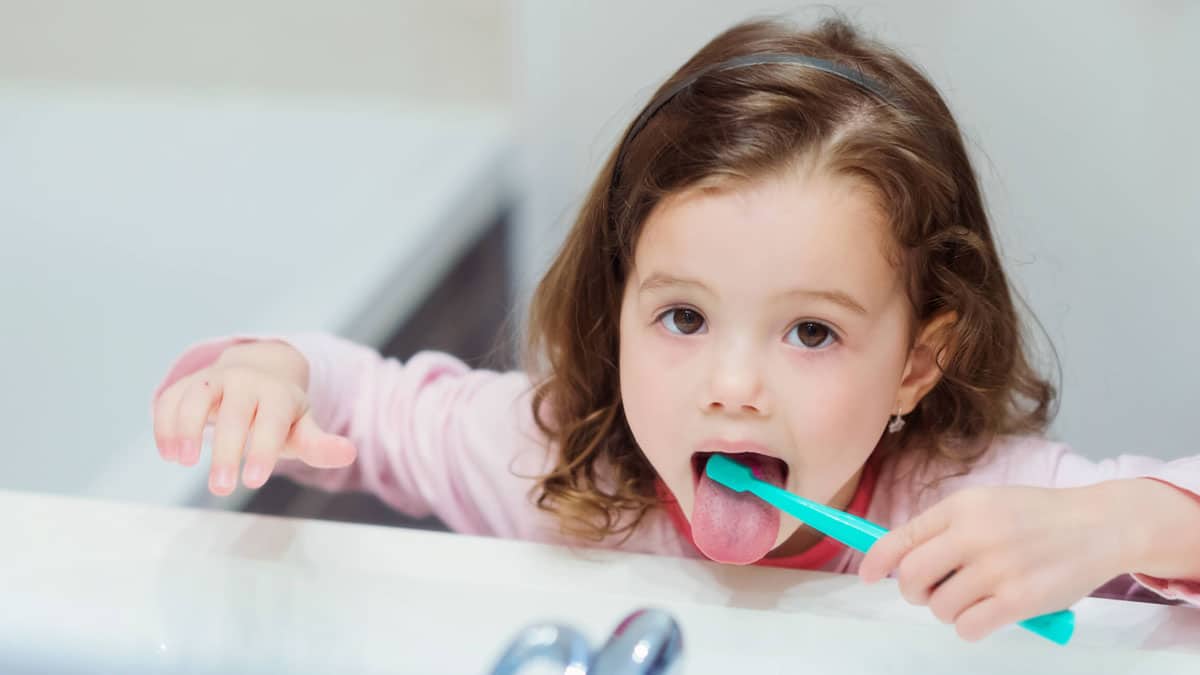
There are certain things you need to remember that would significantly improve the brushing habits of your kids. They are as follows:
- First of all, you need to make your kid fall in love with the idea of brushing. You can start doing it by letting them choose the colour and shape of their toothbrush. Sometimes, kids like to see their favourite cartoon characters or superhero in their toothbrushes. Allow them to do that. Make sure the bristles of the toothbrush are soft.
- The same goes for the flavour of toothpaste. If your kid doesn’t like it, change it. However, make sure that it is fluoride toothpaste and that your kid is not consuming the toothpaste. Swallowing toothpaste will lead to the creation of brown or white spots on the permanent teeth of your kid in the future.
- Up until age three, use a pea-size amount of toothpaste for your kid and gradually increase the amount every two years since then.
- Set a timer and make sure that your kid is brushing their teeth for at least two minutes.
- Now, you have heard a lot of advice regarding the direction of brushing. Honestly, it doesn’t really matter as long as all the corners are being taken care of. So, your kid can go back and forth, up and down, in circles, whichever way is convenient to him or her. Just ensure that each tooth is being taken care of from top to bottom and inside and out.
- Switch your old toothbrushes every three to six months.
- Teach your kid how to floss at least once a day. It is advised to buy soft dental flosses from a chemist shop.
Good Dental Habits to Remember
In addition to brushing and flossing, please remember to provide the follow these dental habits:
- Make sure that your kid avoids sugary foods and drinks such as flavoured milk, soft drinks, and fruit juice between meals. Also, try and look inside the mouth of your kid every now and then for early signs of tooth decay. Whenever your child is consuming any sticky food such as gum, caramel, dried fruit, or toffee, ask him or her to thoroughly wash their mouth with water.
- If your child is into sports, make sure they wear a mouthguard in order to protect their teeth from any sort of injuries. Please, remember that taking proper care of the primary teeth will help in proper spacing and alignment of permanent teeth.
- Schedule a dental appointment for your kid every six months irrespective of his or her dental conditions. This is because a lot of the times, you can’t notice the early signs of decay, but dentists can. And the sooner the precaution can be taken, the better.
It is the duty of the parents to ensure that they set a daily routine for their kid’s oral health and help them understand the value of oral hygiene. We all know that children respond immediately to social stimuli of affections and praise, and they do it best by imitating their parents. So, when you, as a parent, make efforts in establishing ground rules of good dental healthcare, your child will likely follow suit.
References
P.S. Casamassimo, J.Y. Lee, M.L. Marazita, P. Milgrom, D.L. Chi, and K. Divaris – NCBI – Improving Children’s Oral Health – An Interdisciplinary Research Framework. Available at:
https://www.ncbi.nlm.nih.gov/pmc/articles/PMC4212323/
America’s Paediatric Dentists – Paediatric Dentistry Journal Open Access Articles. Available at:
https://www.aapd.org/publications/journals/open-access/
Centers for Disease Control and Prevention – Children’s Oral Health. Available at:
https://www.cdc.gov/oralhealth/basics/childrens-oral-health/index.html
- CATEGORIES : Dental

